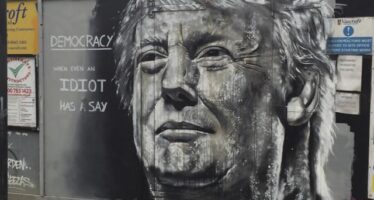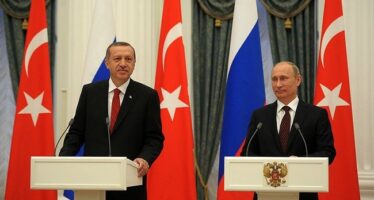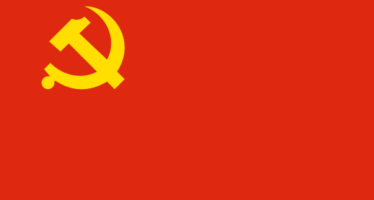Iran – Still Executing Kurds
![]()
“I asked them to show me his grave. I would like to take my grandchildren to their father’s grave to mourn. However, the authorities said they won’t reveal the location of the burial.” (Aboubakr Abdollahpour to Iran Human Rights)
Following the execution of Ramin Hossein Panahi on September 8 2018, the Iranian regime, with its Revolutionary Guards at the helm, once again comes under international scrutiny for its disappearance and execution of political prisoners with little interest in due process.
In May this year Amnesty International called on the Iranian authorities to immediately “reveal the truth” regarding four death row prisoners Hossein Silawi, Ali Khasraji and Naser Khafajian, (from Iran’s Arab minority), “forcibly disappeared since 31 March 2020” and Hedayat Abdollahpour, a Kurdish death row prisoner disappeared since 9 May 2020. Enforced disappearance, Amnesty tells us, is a crime under international law,
“The authorities’ refusal to provide the families of the men with information has sparked fears that they are at risk of being tortured or executed in secret”, the London-based rights group said on May 13….Their enforced disappearance has taken place amid an apparent rise in the number of executions since April 2020, including in prisons populated by ethnic minorities, which has further heightened concerns about their safety and wellbeing.” (Iran-HRM)
Now, one month later, June 10, the father of Hedayat, Aboubakr Abdollahpour, revealed that he has been informed that his son was executed “20 days ago” in Oshnavieh prison.
Hedayat Abdollahpour (along with at least 6 others) was arrested on June 15, 2016 following a clash between the Democratic Party of Iranian Kurdistan (PDKI) and the Revolutionary Guards (IRGC) in the village of Qareh Soqol in Oshnavieh, West Azerbaijan Province. As is usually the case, the arrests were of those suspected of supporting the militant Kurdish group. However Hedayat was the only one to be sentenced to death on charges of “rebellion” alleged by the Revolutionary Guards. His sentence was initially overturned by the 47th Branch of the Supreme Court and referred to the 2nd Branch of the Islamic Revolutionary Court of Urmia for review. He was again sentenced to death, by the same court, and the sentence was finally upheld by the Supreme Court.
Hossein Ahmadi Niaz, the political prisoner’s lawyer, commenting on the sentence said: “…Even though he played no role in the clash and wasn’t even there.”
“One of the Supreme Court judges explicitly told me and his father that Hedayat was innocent because he had nothing to do with the clash and its aftermath, but the death sentence was confirmed because of pressure from Iranian military and security authorities in Kurdistan” he added.
Likewise, the sentence, in February 2017 came after what Amnesty International described as a “grossly unfair trial”, having been held by the Revolutionary Guards in solitary confinement for 78 days and tortured. “His family has said that he lost hearing in one ear after being subjected to torture during this period.”
On 9 May 2020, Hedayat Abdollahpour was then transferred from the central prison in Urumieh, in the West Azerbaijan Province, to an undisclosed location. “His family and lawyers desperately trying to obtain information on his fate since then.”
Hedayat’s execution was apparently then carried out without his lawyers being notified in advance of the execution as is required by Iranian law.
Hedayat’s father has now been told by Iranian authorities that they would not reveal his burial location.
“I asked them to show me his grave. I would like to take my grandchildren to their father’s grave to mourn. However, the authorities said they won’t reveal the location of the burial,” (Aboubakr Abdollahpour).
Like Ramin Hossein Panahi, executed in Rajai Shahr Prison in Karaj, Hedayat was also executed while his case was at the Amnesty and Pardon Commission.
Human rights groups have expressed their concern that there has been a sharp rise in prison executions in Kurdish areas in recent months.
“According to the IHR statistics department, in the past ten years, the majority of political prisoners executed for affiliations with opposition groups have been ethnic minorities, of which, the Kurds make a significant number.” (Iran Human Rights)
Apparently, just as we have seen in Turkey, it is not so safe to be a Kurd in Iran. Worse still it is even less safe to be a Kurd in an area where opposition to the “Regime of the Mullahs” is on-going…
Kurds in Iran
In 2019 the Islamic Republic of Iran executed 52 Kurds (Hengaw Organization figures) in the country’s prisons out of an overall count of “at least 251” executions (Amnesty, Death Penalty, 2019).
The Iranian authorities executed 70 Kurds in 2018, Hengaw, the human rights group reporting on rights violations in Iranian Kurdistan, also reported in its statistics.
“Ever since its emergence in 1979 the Islamic regime imposed discriminatory rules and laws against the Kurds in all social, political and economic fields.
“Iran’s Kurdish minority live mainly in the west and north-west of the country. They experience discrimination in the enjoyment of their religious, economic and cultural rights.
“Parents are banned from registering their babies with certain Kurdish names, and religious minorities that are mainly or partially Kurdish are targeted by measures designed to stigmatize and isolate them.
“Kurds are also discriminated against in their access to employment, adequate housing and political rights, and so suffer entrenched poverty, which has further marginalized them.
“Kurdish human rights defenders, community activists, and journalists often face arbitrary arrest and prosecution. Others – including some political activists – suffer torture, grossly unfair trials before Revolutionary Courts and, in some cases, the death penalty.” (Ekurd-Daily, January 2020)
Enough said…
…now that Hedayat Abdollahpour, husband and father of two children, Sirvan and Kurdistan… becomes another casualty, one of approximately 45 million Kurds without a homeland, whose life is forfeit to a regime with one of the highest execution rates in the world and who tolerates little opposition from those living within its arbitrary and artificial state borders.
séamas carraher
Image: “Ramin Hossein Panahi and ”Hedayat Abdollahpour, Sentenced to death 20-02-18” Kurdistan Human Rights Association (“Fair-Use”)
Related Articles
Las supuestas “disculpas” de Israel a México por el tweet de Benjamin Netanyahu apoyando el muro entre México y Estados Unidos
![]()
el Presidente de Israel mantuvo una conversación telefónica con su homólogo mexicano, con el fin de limar las tensiones creadas entre ambos Estados
Idlib Will be the Final Test of Turkish-Russian Cooperation in Syria
![]()
With Turkey preparing the rebels in Idlib to repel the impending offensive by the Syrian Arab Army it seems likely that this will be the end of Turkish-Russian cooperation in Syria
How Xi Jinping’s ‘lifetime presidency’ could change China
![]()
Thanks to surprising new constitutional amendments the path is clear for Xi Jinping and his chosen vice-president to rule China beyond the ten-year two-term limit





